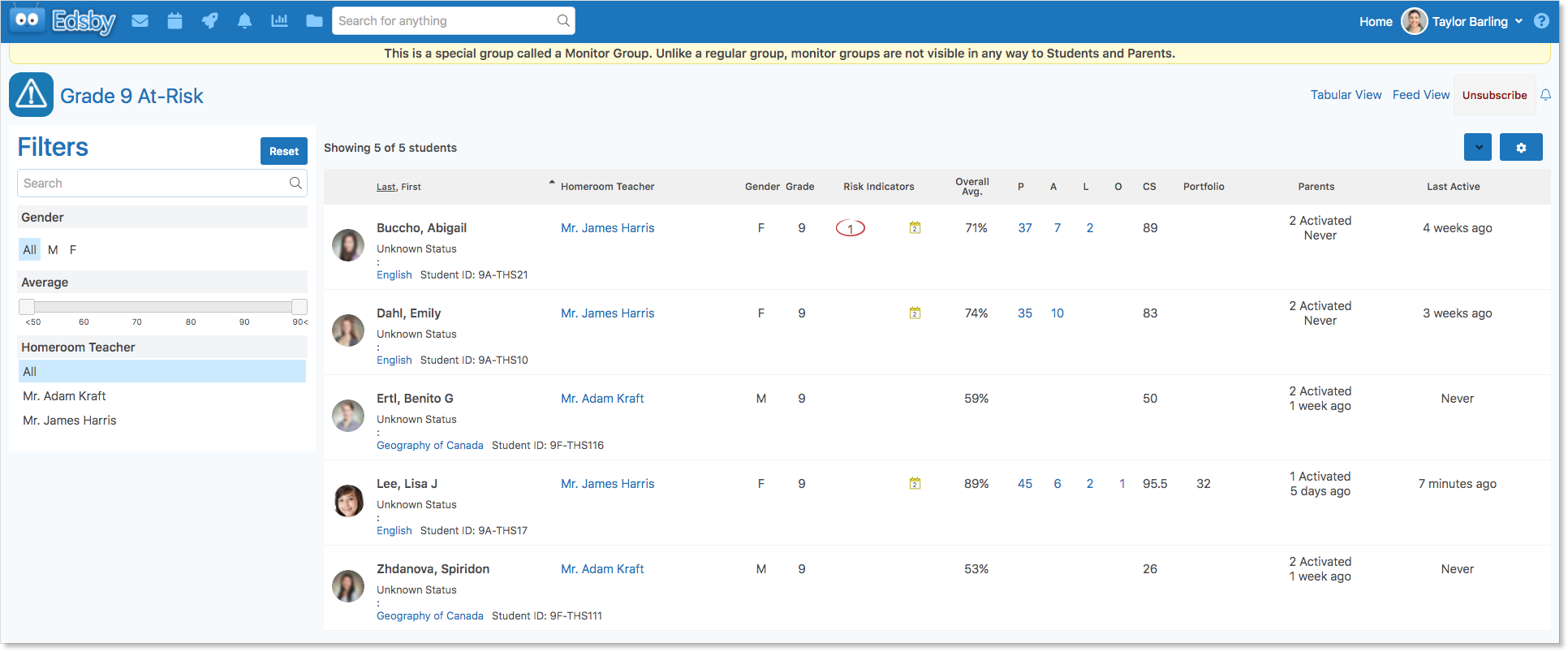How Edsby is prioritizing learning recovery and support
The pandemic has ignited a spirited debate about the existence and severity of student learning loss, instructional loss and learning recovery. The matter is complicated further by the fact that the most recent relief package passed by the U.S. federal government – the American Rescue Plan – includes a stipend specifically for learning loss.
While the pandemic has disrupted traditional, in-person instruction, it has also energized a shift towards innovative, flexible learning. We’ve seen students gain crucial skills, like resilience and time management, and educators apply fresh strategies to gauge student growth and maintain family engagement. We also know students’ experiences were uneven, and many learners experienced setbacks as a result of the pandemic.
At Edsby, we believe we must approach learning recovery with care for and understanding of educators, students and families.
Edsby is focused on the role we can play to improve teaching and learning today, tomorrow and well into the future with the purpose-built technology infrastructure to do so. Let’s set the semantics aside and rededicate ourselves to what matters most: supporting educators, students and their families.
How has the pandemic really impacted student learning?
According to the Center for Assessment, we haven’t experienced so much a reduction in existing knowledge or skills, but a difference between a current reality and some ideal or at least normal condition. Several organizations and companies in education have sought to understand the severity of the mismatch. Some estimate that students are three to five months behind where they typically might be by the start of next year.
Current studies cite that in general, COVID-19 closures and disruptions have mainly impacted reading and math. To accurately identify areas of growth toward learning recovery, education leaders must be equipped with the resources to do so.
A holistic view of student progress
In order to provide extra support to students, educators must first be able to pinpoint learners’ present state, and what they need to be successful.
Education Week suggests the following: Rather than diagnostic exams, districts might consider investing in teacher training on how to develop and make use of their own day-by-day and minute-to-minute gauges of what students know that help them alter teaching in real time. While this idea of “formative assessment” has been around for decades, it is still not deeply ingrained in American schools.
Edsby’s assessment and reporting feature enables teachers to create custom formative and summative assessments that align to district and regional standards. Teachers can make observations and capture learning evidence in notes, pictures and videos to help track student progress in real time. In addition, students and guardians can privately share learning evidence with teachers, enabling educators to better track the child’s progress.

Edsby’s collection and sharing of data
Comprehensive learning analytics capabilities in Edsby enable educators to find trends in achievement data and identify at-risk students in real time across an individual school, group of schools or a whole school district or region. And, with Edsby’s drill-down capabilities, users can easily find the data they need and then take action within the same system.
To ensure students who are learning from home aren’t lost in the shuffle, educators must consistently foster engagement. An easy way to do this is to check the last time the learner logged in to an online platform or used a digital tool. Teachers can use Edsby’s group collaboration feature to identify at risk students based on factors like attendance incidents and grades, and then add in personalized observations to provide deeper insights into the student’s academic journey. Edsby monitor groups can help isolate groups of students at risk, or of other special interest, where educators can manage and take actions with them and their parents. Lakehead Public Schools is using this strategy with Edsby to boost graduation rates among students at risk.

Edsby can serve as the primary store of academic information across a district, region or country—a single place where everything having to do with student success can be collected, stored and used. Through proprietary and open standards, the platform is able to “talk” to a variety of data sources, including other learning management systems (LMSes), student information systems (SISes) and legacy data warehouses.
Encouraging educator, student and family engagement
When educators and parents or guardians are able to act as partners, students are more likely to experience academic achievement. This is more important than ever for learning recovery. Schools and districts can take advantage of this by prioritizing family partnerships in their learning recovery plans. This means consistently sharing students’ progress and engaging with families throughout the school year.
Edsby involves families in their student’s academic journey by providing information in real-time, including grades, assignments and attendance, as well as specifics of what’s being taught in each class each day. Armed with this information, parents and guardians can better support their students – regardless of where the actual learning is taking place.
Tools like polls, notes and “likes” support educators in building supportive virtual communities and maintaining relationships with students and their families.
Educators are also encouraged to collaborate with one another in Edsby to identify new ways to solve pandemic-related challenges. District leaders can use professional development groups to deliver training and resources to teachers and encourage conversation around best practices and strategies for impacting student learning.
How to invest in learning recovery
Schools and districts can address learning loss by investing in learning recovery. Districts receiving COVID-19 relief funding for education are encouraged to consider if the technology, curriculum and other resources they have is adequate for providing the additional mental, physical and academic support that students will most certainly need.
Edsby is an award-winning digital learning platform that picks up where today’s LMSs leave off when it comes to the unique needs of K-12. Click here to see how Edsby stacks up against the competition.
To learn more about how Edsby supports learning recovery, sign up for a free demo.
